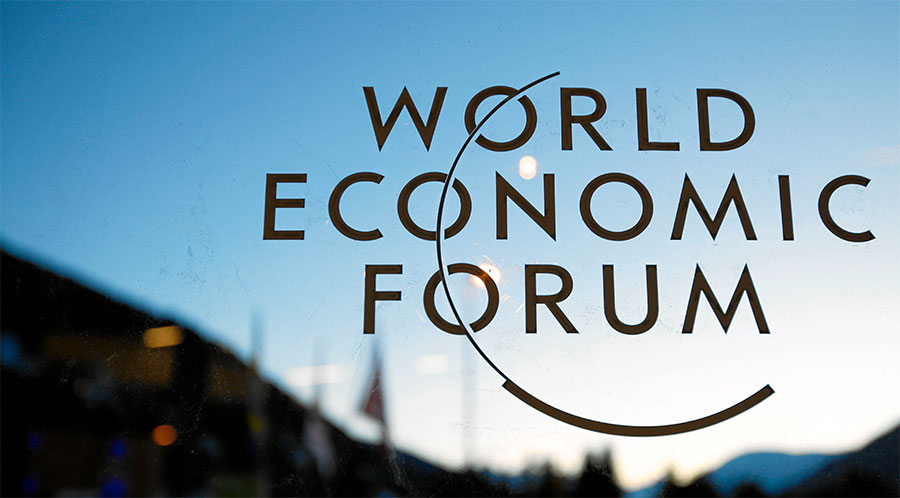- Nigeria Dropped to 127th Place on Global Competitiveness Index
Nigeria has dropped three places to the 127th position on the latest World Economic Forum’s (WEF) Global Competitiveness Index (GCI) for 2016-2017, out of 138 countries surveyed. The country was previously ranked 124th on the index.
At 127th position, Nigeria only performed better than Madagascar, Yemen, Venezuela, Congo DR, Liberia, Sierra Leone, Burundi, Mozambique, Chad, Mauritania and Malawi.
The report, which was released wednesday by WEF, showed that Nigeria ranked lowest in health and primary education, and was greatly affected by a weaker macroeconomic environment.
“Nigeria is among the African economies hardest hit by the reduction in commodity prices, falling three places to 127th overall,0 almost entirely due to its weaker macroeconomic environment (down 27 places) and financial sector (down 10 places).
“Although still relatively low, the government deficit has almost doubled since last year and national savings have significantly suffered, worsening the current account position.
“Banks are less solid, reducing the availability of credit; despite the central bank ending its currency peg, financial authorities have retained restrictions on access to the interbank market, meaning access to finance will remain difficult for many businesses.
“Additional factors holding back Nigeria’s competitiveness include an underdeveloped infrastructure (132nd), which is again rated as the country’s most problematic factor for doing business; insufficient health and primary education (138th), with only 63 per cent of children enrolled in primary school; and the poor quality and quantity of higher education and training (125th),” it added.
The report also indicated that sub-Saharan Africa’s competitiveness slightly weakened year-on-year, mainly as a consequence of deteriorating macroeconomic environments across the region.
Public finance has been put under stress by economic slowdowns among trading partners and persistently low commodity prices, which affect the commodity-exporting countries, it added.
These factors, according to the report, helps to explain why growth on the continent has dropped from over five per cent two years ago to only 3.5 per cent in 2015 and was projected to fall further, to three per cent, in 2016.
“Short-run pressure on public funds may have long-lasting effects on African economies by reducing much-needed investments in infrastructure and education, while higher uncertainty about country financial risks could shrink private investments.
“Slower growth and falling commodity prices have already started to affect the African financial sector, reducing liquidity and tightening credit conditions. As a result, although the banking system remains generally solid, business leaders rate the banking environment as worsening in two-thirds of the countries assessed by the GCI, and access to finance is mentioned more often as a problematic factor for doing business in the region.
“Improvements have been achieved in the business environment, information and communication technologies, and infrastructure, but these have been insufficient to improve overall productivity levels, as reflected by a substantially stable GCI performance at the regional level (this changed by less than 1 per cent compared to the last edition).
“Continued progress in these areas will be challenging, given low commodity prices and low growth trajectories in advanced and emerging economies—but progress is necessary, as these countries are among the areas where Africa still has the largest disparities with the world’s most competitive economies.
“Global Competitiveness Report 2016–2017 is being launched at a time of rising income inequality, mounting social and political tensions, and a general feeling of uncertainty about the future.
“Growth remains persistently low: commodity prices have fallen, as has trade; external imbalances are increasing; and government finances are stressed.
“However, it also comes during one of the most prosperous and peaceful times in recorded history, with less disease, poverty, and violent conflict than ever before.
“Against this backdrop of seeming contradictions, the Fourth Industrial Revolution brings both unprecedented opportunity and an accelerated speed of change,” WEF said in the report.


 Forex3 weeks ago
Forex3 weeks ago


 Naira2 weeks ago
Naira2 weeks ago
 Billionaire Watch2 weeks ago
Billionaire Watch2 weeks ago




 Naira2 weeks ago
Naira2 weeks ago




 Naira2 weeks ago
Naira2 weeks ago




 Naira1 week ago
Naira1 week ago




 Naira4 weeks ago
Naira4 weeks ago




 Naira3 weeks ago
Naira3 weeks ago





















